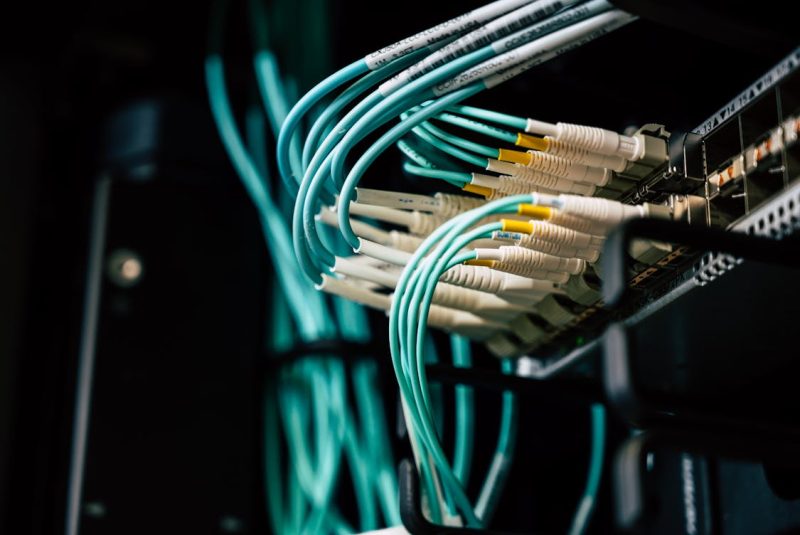From telemedicine and remote monitoring to data analytics, medical software solutions are becoming increasingly vital for efficient healthcare services. This comprehensive guide explores the diverse functions, benefits, and overarching impact of specialized healthcare software.
In recent years, software shaping the future of patient care has been a transformative force in healthcare, allowing for more personalized treatments and efficient management of patient data. As these technologies evolve, they promise to reduce medical errors and improve outcomes by providing real-time insights into patient health. By integrating these innovations, healthcare providers are better equipped to address the needs of patients more effectively than ever before.
Custom Healthcare Software Development
Healthcare software development is a specialized process that creates tailored computer programs to meet the needs of medical professionals and institutions. It offers a wide range of benefits, including increased efficiency, reduced costs, improved patient care, and better operational outcomes. The healthcare industry is experiencing a major transformation, and the implementation of custom healthcare software solutions plays a critical role in this evolution.
Healthcare solutions such as Electronic Health Records (EHR) systems, telehealth integration, and advanced diagnostic tools allow medical professionals to better serve patients and streamline operational efficiency. Moreover, the use of healthcare software helps reduce errors, ensures compliance with strict regulatory standards, and optimize workflows.
However, developing a healthcare software solution requires precise engineering that is aligned with unique healthcare domain requirements. This involves leveraging innovative technologies and adhering to stringent cybersecurity standards. Moreover, ensuring data privacy and security is vital to the success of healthcare software solutions.
When designing a healthcare software solution, consider the following factors:
First and foremost, you must make sure that the solution is designed using an agile methodology to speed up the development process. In addition, you should implement a scalable healthcare application that can support multiple users and devices. Lastly, you should plan for data encryption to protect sensitive information at rest and in transit. You should also incorporate two-factor authentication and role-based permissions to keep unauthorized people from accessing sensitive information.
Developing a healthcare solution that has a user-friendly interface is vital to ensure adoption and satisfaction among end users. To achieve this, you should ensure that the software has a modern, intuitive design and uses a modern language such as Swift or Angular. This approach will result in a smooth, fast, and reliable healthcare software solution.
Finally, you must also develop a healthcare software solution that is compatible with existing hospital systems. This will help ensure that the software integrates seamlessly with existing hospital systems and reduces data siloes. Additionally, you should plan for ongoing support and maintenance of the system to ensure its reliability and accuracy. This support should include addressing issues, conducting performance optimizations, and providing regular updates.
Healthcare Call Center Software
Healthcare call center software helps medical organizations improve patient engagement by providing a centralized hub for communication and support. These platforms offer many operational features beyond inbound and outbound calling and messaging that help hospitals, clinics, pharmacies, laboratories, and more manage their calls, customer queries, and patient data in a secure environment while complying with HIPAA regulations.
In addition to streamlining communication across phone, email, and chat channels, healthcare call center software helps organizations automate routine tasks like appointment booking and follow-ups, improving productivity and patient satisfaction. This software also allows agents to track performance using real-time reporting and analytics, helping managers identify areas of improvement. Healthcare contact center solutions should be easy to use and compatible with existing tools, making it simple for new agents to adapt to the platform and become productive quickly.

The best healthcare call center software should be HIPAA-compliant, ensuring that all ePHI is securely encrypted and only accessible by authorized users. It should also be able to track calls, records, notes, and other data shared between healthcare call center solutions and other systems such as EHRs or EMS software. This way, even if your organization experiences a breach, it can be contained before the issue spreads and affects more patients.
A good healthcare call center software should include features such as advanced call routing, which enables callers to self-navigate through a preset options menu and connect with the right person easily. Other useful tools include call recording, missed call-to-text, and voicemail transcription. Additionally, a healthcare call center solution should be able to integrate with existing CRM tools and other third-party applications for seamless communication and management.
Finally, a good healthcare call center software should offer 24/7 support to allow for emergencies and out-of-hours appointments. Emergencies don’t stick to a 9-to-5 schedule, and patients expect their healthcare providers to be available when they need them. Having this option will ensure that your patients are able to get the assistance they need, whenever they need it. Additionally, it will also help your business build trust and loyalty with customers.
Healthcare Logistics Software
Healthcare logistics software enables efficient management of the distribution of medical supplies, equipment, and pharmaceuticals from manufacturers to hospitals and patients. Its key functions include optimizing delivery routes, improving inventory tracking, and ensuring compliance with regulatory requirements. The specialized software helps to reduce costs and improve coordination between departments, ultimately enhancing patient care.
Efficient logistics in healthcare is a must because delayed or incorrect deliveries can disrupt patient treatment and increase operational costs. In addition, it’s crucial to ensure that sensitive products such as pharmaceuticals and vaccines are delivered on time, at the right temperature. This can help to prevent product expiration or contamination that could endanger patient health.
Logistics solutions for the healthcare industry are complex and require compliance with strict regulations regarding temperature control, inventory visibility, and other factors that impact the integrity of medical supplies. Healthcare logistics software offers a variety of features that address these requirements, including real-time monitoring and tracking, route optimization, delivery scheduling, integration with other systems, and more. These features improve efficiency, reduce costs, and ensure compliance with regulatory requirements, all while ensuring the safety of medical supplies.
Moreover, a logistics solution for healthcare must be flexible to adapt to sudden demand spikes during global crises such as pandemics or natural disasters. This can be achieved through a combination of automation, transparency, and predictive analytics. Using these tools, healthcare providers can predict what supplies they need and when, and then efficiently arrange transportation arrangements to meet those needs.
In addition, a logistics solution must integrate with existing healthcare systems to improve data accuracy and eliminate information gaps. This can be done through a centralized system that combines and analyzes data from different healthcare applications and databases, and also supports real-time decision making by providing insights and alerts to users when critical data is missing or outdated. This can also help to identify and fix errors such as coding issues, documentation issues, or billing mistakes, which may have caused claim denials. These errors can be quickly identified and fixed to recover lost revenue and improve patient outcomes.
Denial Management Software
In healthcare, one of the biggest issues facing revenue cycle management is claim denials. These denied claims can result in a significant loss of revenues and a direct impact on the bottom line. As a result, many healthcare organizations are now looking for solutions to help mitigate the risk of claim denials and improve their clean claim rates.
To address this issue, a growing number of companies are now providing specialized healthcare denial management services and software. This healthcare software development trend leverages next-gen technologies to empower healthcare denials management systems to tackle challenges proactively and achieve exceptional results.
The best healthcare software for managing denials and appeals will provide a centralized repository of all rejected or denied claims, including detailed explanations of the reasons why they were denied. This data can then be used to analyze trends and identify common errors, allowing providers to prevent similar denials in the future. Healthcare denials management software should also be able to automatically track and follow-up on denied claims, and integrate seamlessly with existing EHR systems.
Another critical feature is a reporting system that provides clear, actionable insights into revenue lost and recovered, allowing healthcare owners to make informed business decisions. In addition, the solution should be scalable to handle increasing denial volumes and allow for customization to align with unique workflows.
A healthcare denials management solution should also enable users to maintain compliance and adhere to regulatory guidelines. This functionality helps ensure that billing and coding processes are compliant with industry standards, and reduces the risk of fines or financial losses due to non-compliance.
A healthcare denials management solution should incorporate automated, streamlined workflows that allow staff to focus on high-value activities. In addition, it should incorporate robotic process automation (RPA) to eliminate manual, repetitive tasks like data entry and follow-ups, reducing the risk of error and improving efficiency. It should also connect to existing systems to facilitate real-time data exchange, and integrate with EHRs and hospital management apps to create a cohesive ecosystem that improves operational efficiency and enables faster claim resolutions.








